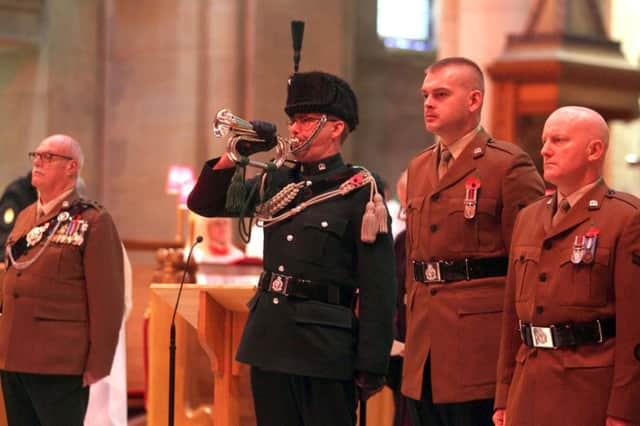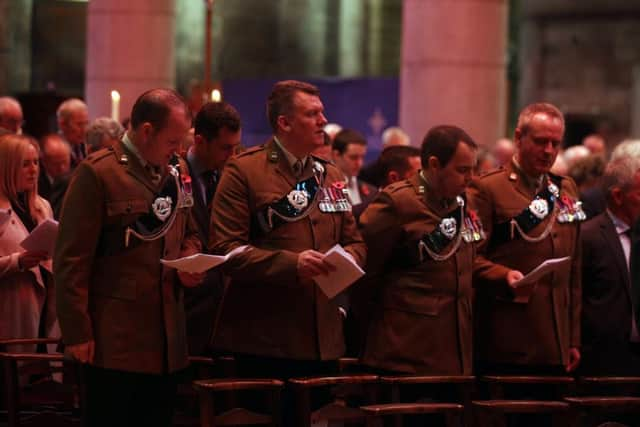Royal Irish Regiment holds service of remembrance


The regiment gathers each year to remember all of those of the wider regimental family who have died, whether in action or of natural causes.
The Service of Choral Evensong, which featured music from The Band of The RIR, included an act of remembrance and laying of wreaths. It was attended by all ranks of the regiment and a number of veterans and bereaved families.
Advertisement
Hide AdAdvertisement
Hide AdGiving the address, the Archbishop of Armagh and Primate of All Ireland, the Most Revd Dr Richard Clarke, said it was “a genuine privilege” to have been invited to preach at a service for a regiment with such “a distinguished history”.


He spoke about human dignity in the context of remembrance and the reality of hope and peace through following and experiencing the presence of Jesus Christ.
Taking his theme from the RIR’s regimental motto ‘Faugh a Ballagh’ (clear the way), the Archbishop highlighted its resonance with swords being beaten into ploughshares and spears into pruning hooks: “This was the honest hope of many who volunteered to fight in the First World War, that this was a war that would destroy war for all time.”
“Clearing the way’, in biblical terms, is not simply about retaining our humanity even in the most terrible of circumstances, in the horrors, deprivations and torments of violence. It takes us further. It is also about clearing the way for a future that is better than what we wish to leave behind,” he said.
Advertisement
Hide AdAdvertisement
Hide AdHe recalled how the war poet Wilfred Owen, who was killed in action 100 years ago to the day, affirmed humanity even in the midst of the war that would claim his life.
“Owen’s most important contribution, not simply to poetry but to our understanding of war even one hundred years later, was his determination that humans should never lose their humanity, regardless of the dreadfulness of their circumstances, even in the mud and terror of war that he was experiencing at first-hand,” he continued.
The Archbishop concluded: “‘Clear the way’ has of course a distinctive military meaning – removing whatever is obstructing an advance. But it has, as I have suggested, a spiritual dimension as well. Clearing from ourselves all that stands between us and the life that we could live, the life that allows us to reach our full potential, our full stature – as the Scriptures put it – as children of God.”